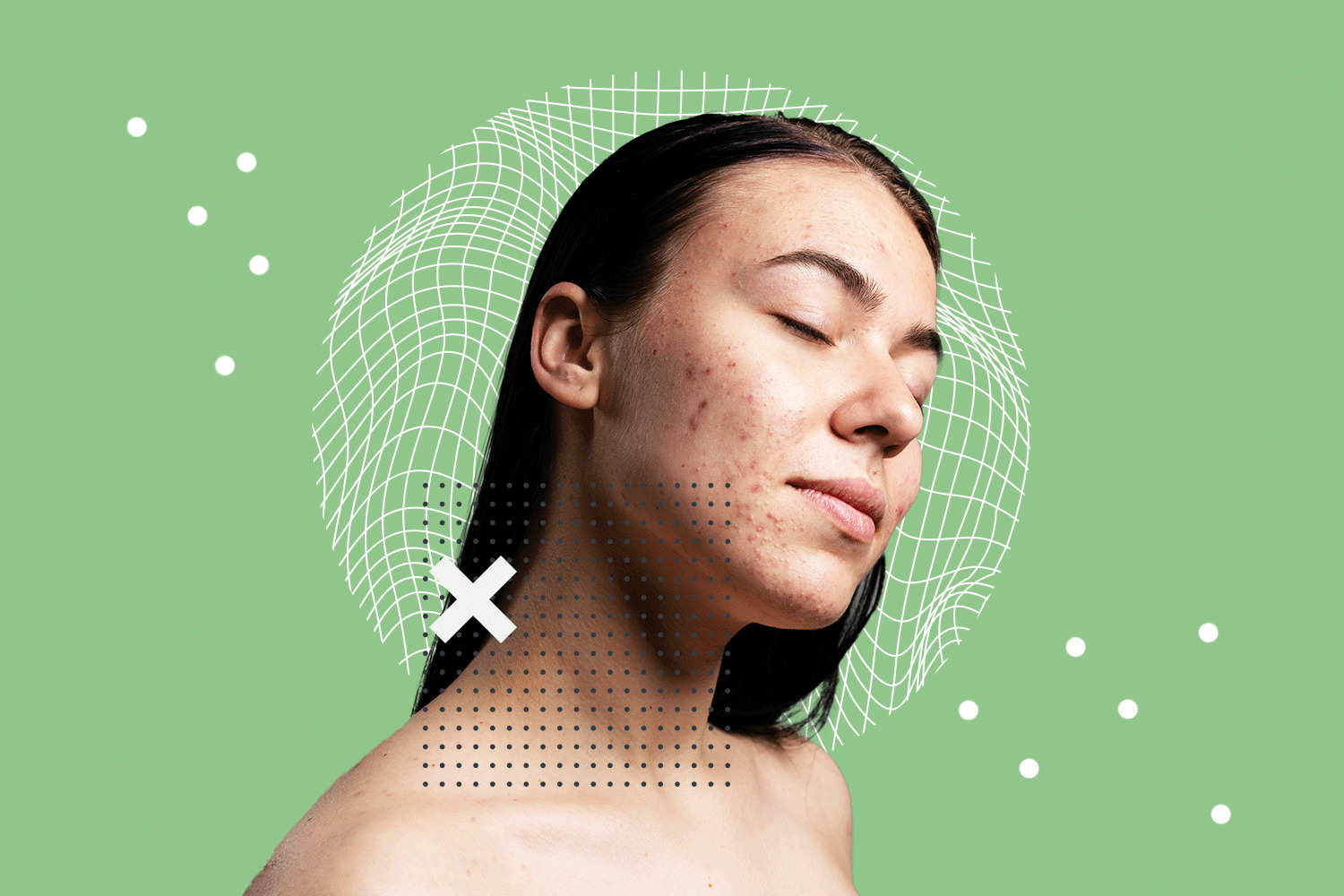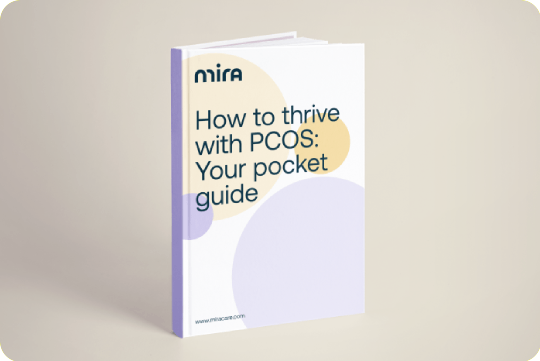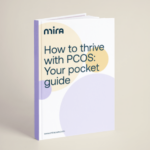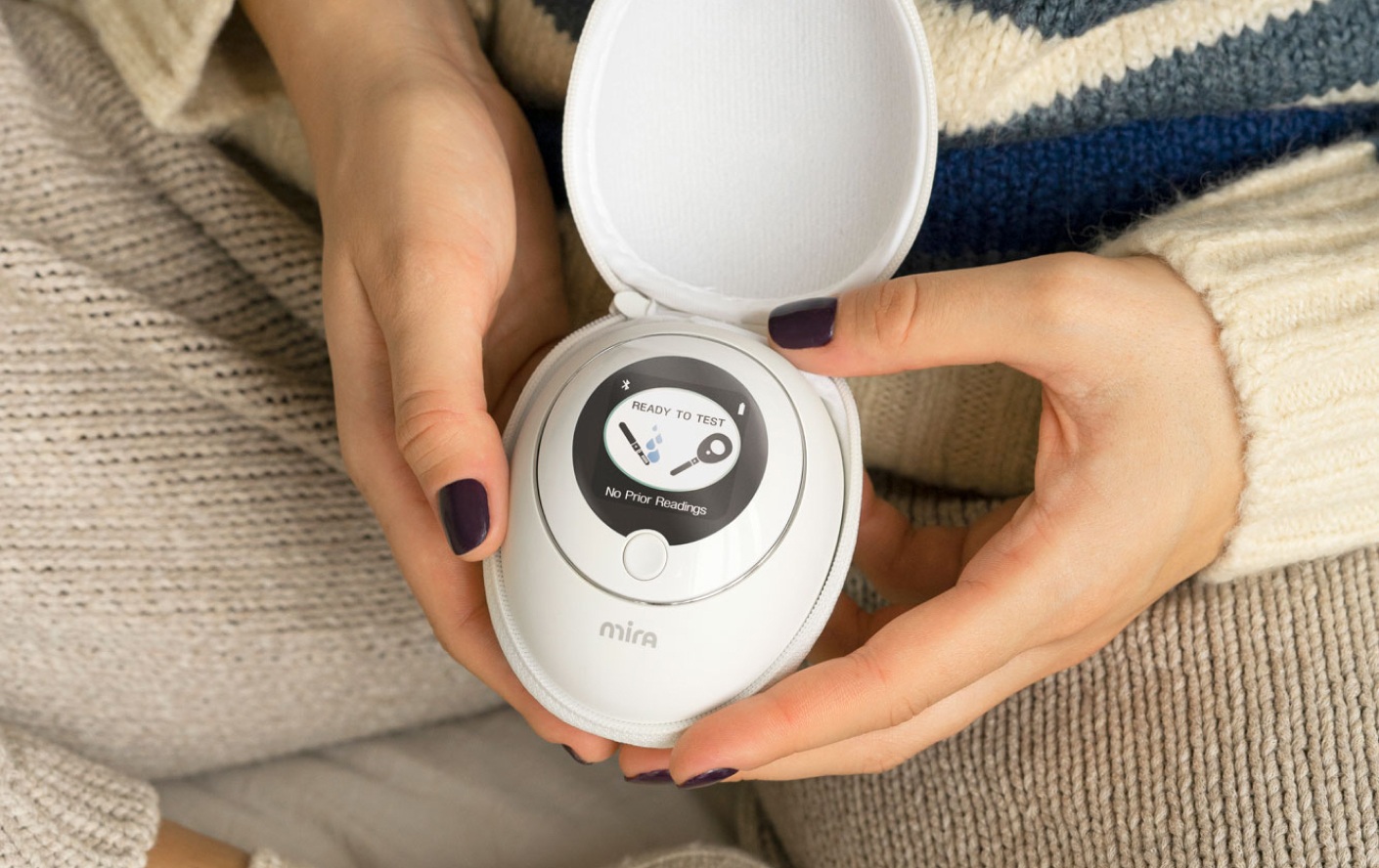PCOS Acne: Treatments and Success Stories
Can PCOS cause acne?
Understanding PCOS acne
PCOS acne symptoms
PCOS acne treatment options
PCOS acne supplements
PCOS acne success stories
An estimated one in ten women experiences polycystic ovarian syndrome (PCOS), a condition causing a hormonal imbalance of androgens, progesterone, and insulin. Women with PCOS may experience irregularities with the menstrual cycle, difficulties with getting pregnant, thinning of the hair, unwanted hair growth, and acne.

In this article, we will take on PCOS acne specifically, and shine a light on how it develops, the most common symptoms, and potential treatment options to improve its appearance.
Can PCOS cause acne?
Yes. Acne is one of the primary symptoms that many women with PCOS experience.
Understanding PCOS acne
Anyone who has been a teenager has probably dealt with acne at some point. However, PCOS acne is different. Here’s a closer look at what causes it, how it progresses, and how it can be treated.
What causes PCOS acne?
One of the primary causes of PCOS is hormonal imbalance, specifically when androgen levels are too high. Androgens are hormones that focus on growth and reproduction in both males and females and they are known to cause acne. Many women with PCOS also have heightened levels of insulin, which can also lead to the production of too much testosterone.
In addition to acne, the hormonal imbalance due to PCOS can also cause unwanted hair growth on the body and face, male pattern baldness, and missed periods.
How does it progress?
When acne is caused by PCOS, it tends to flare up in the lower section of the face. For example, the chin, cheeks, jawline, and even the upper neck. Many doctors consider this to be the most common “hormonal pattern” for PCOS acne.
Acne caused by PCOS may also be larger in size or deeper compared to other acne spots. They are also likely to be below the skin. It’s also common for PCOS-related acne to flare up before and during your menstrual period, and then resolve itself once the period is over.
Can PCOS acne be cured?
The best way to cure PCOS acne is to address the root of its cause: PCOS. To treat PCOS, your doctor will likely recommend a combination of both medication and lifestyle changes.
To treat the appearance of acne specifically, the most common treatment that doctors turn to are oral contraceptives containing both estrogen and progestin (synthetic progesterone). By taking this type of birth control over several months, acne symptoms typically improve.
However, birth control may not be an option if you are trying to conceive (TTC). If this is the case, there are other ways to manage PCOS acne symptoms by following a good skincare routine, using certain over-the-counter skin creams, and maintaining a healthy diet.
Could anything else be causing the acne?
Yes. There are a number of other reasons why you may experience acne. The American Academy of Dermatology names the following as potential reasons why acne may develop:
- Stress
- Family history
- Side-effect of medication
Certain cosmetic products may also agitate your skin and cause acne flare-ups. Other potential lifestyle factors that may increase your risk of developing acne include smoking, not getting enough sleep, and eating certain foods (for example, foods that are high in fat and sugar).
PCOS acne symptoms
Now that we’ve covered the basics of PCOS acne, let’s take a closer look at the most common symptoms.
Acne appears in the most hormonally sensitive parts of the face
The following areas of the face are considered to be the most sensitive to hormonal fluctuations:
- Cheeks
- Jawline
- Chin
- Upper Neck
Because the root cause of PCOS is elevated androgens, PCOS-related acne is most likely to develop in these areas.
Acne persists into adulthood
Individuals between the ages of 12 and 24 are most likely to experience acne. However, if acne persists beyond the age of 25, this could be a sign that the acne is PCOS-related.
Acne begins in adulthood
If you never had acne as a teenager but have developed it as an adult, PCOS could be the cause. If you are experiencing other PCOS symptoms, it might be a good idea to speak with your doctor.
Acne tends to flare up around period
When acne is PCOS-related, it tends to flare up before and during your menstrual period. If you think your acne is hormonal, try to keep track of any flare-ups in a notebook and compare that to the dates of your period.
PCOS acne treatments
To treat acne caused by PCOS, there are a few things you can do including maintaining a healthy diet, following a good skincare routine, and making lifestyle changes. Certain medications and supplements may also help to improve the appearance of PCOS acne.
PCOS acne diet
Incorporate foods with a low glycemic index (GI)
Heightened levels of insulin can stimulate the production of testosterone. This in turn can make PCOS symptoms such as acne or unwanted hair growth even worse.
To prevent spikes in blood sugar and insulin, you may want to incorporate foods with a low glycemic index (GI) into your diet. Unlike carbohydrates that can cause blood sugar levels to spike and then crash, low GI foods take longer to digest – keeping your blood sugar (and insulin) levels regulated.
Foods with a low GI include:
- Non-starchy vegetables such as broccoli, mushrooms, peppers, and leafy greens
- Whole grains, brown rice, and oats.
- Lean proteins such as fish, beans, and chicken
- Healthy fats such as olive oil, avocados, and nuts
Incorporate Omega-3 fatty acids
Omega-3 fatty acids have been found to reduce inflammation, and one recent research study found omega-3’s to be a suitable treatment for PCOS and insulin resistance.
To incorporate more omega-3 fatty acids into your diet, you can try any of the following:
- Oily fish including salmon, mackerel, herring, sardines, anchovies, and oysters.
- Seeds and nuts such as flaxseeds, chia seeds, pumpkin seeds, and walnuts.
- Beans such as soybeans, edamame, and kidney beans.
Drink more water
It seems so simple – but it’s so important! Drinking plenty of water throughout the day not only helps to keep the skin hydrated, but it can also help you to maintain a healthy weight in order to better manage PCOS symptoms.
Here are a few ways that you can add more water into your daily diet:
- Add a natural flavoring such as lemon, raspberry, or mint.
- Drink a glass of water before every meal.
- Keep your favorite water bottle with you at all times.
PCOS skin care
Wash your face twice per day
Maintaining a good skincare regime may not help with the underlying causes of PCOS, but it can help to improve the appearance of acne flare-ups due to PCOS.
If you don’t already have a skincare routine, try to get into the habit of washing your face each morning when you wake up and before you go to bed – especially if you have makeup on. Depending on your skin and what works for you, you may want to incorporate a cleanser, toner, and moisturizer into your routine for the best results.
You should also make sure to wash your face after working out, as sweat and dirt from the gym can clog your pores and cause irritation.
Wash your pillowcase and sheets
Dirt, bacteria, and even dead skin cells can remain on the surface of your pillowcase and sheets – even though you can’t see them. To prevent them from irritating your skin or clogging your pores, make sure to wash and change your sheets regularly.
Give a routine time to work
Trying to get your acne to go away can be extremely frustrating, and it’s tempting to try different products every few days or weeks when we’re not seeing the results that we want. However, bear in mind that in order to see a meaningful difference in your skin, you will need to give it time (usually 6 weeks to 3 months) to respond to any creams, treatments, and routines.
In fact, switching up your regime too frequently can even cause acne flare-ups to worsen.
Other options for PCOS acne
Medical
The most common medical treatment for the appearance of PCOS acne is oral contraceptives, as they can help to stabilize hormones and reduce the appearance of acne. Another common PCOS medication that may help with the appearance of acne is anti-androgens, which help to prevent the production of testosterone and block androgen receptors.
If you are trying to become pregnant, oral contraceptives and anti-androgens will not be an option to treat your PCOS acne. We recommend speaking with your dermatologist and doctor about potential medications that are safe to use while trying to conceive.
PCOS Acne Supplements
There are certain PCOS acne supplements you can take that may improve the appearance of acne caused by PCOS. Omega-3 supplements, for example, have been shown to help lower testosterone levels and even regulate the menstrual cycle.
Other supplements that may help to improve acne symptoms include Vitamin D, Magnesium, Vitamin B6, and Zinc.
Make sure to speak with your doctor before starting any PCOS acne supplement – especially if you are trying to conceive.
Lifestyle
In addition to trying PCOS acne supplements and medications, you can also try to make a few lifestyle changes to improve the appearance of acne caused by PCOS.
The first lifestyle change is reducing stress. When the body is stressed, it releases cortisol and adrenaline. When the body is stressed for a prolonged period of time, this can contribute to insulin resistance causing a rise in blood sugar levels. This not only contributes to weight gain, but it can also increase your risk of acne.
To reduce stress, you can try any of the following:
- Meditate for at least 5 minutes each day
- Say no to unnecessary commitments that stress you out
- Pencil in time in your daily schedule to relax and wind down
- Utilize breathing techniques
The second lifestyle change that can improve your overall PCOS symptoms (including acne) is to maintain a healthy weight. This can be done by eating a balanced diet and exercising regularly.
However, you don’t need to become a diet and fitness guru overnight. There are small changes you can try that can potentially make a big difference. This includes:
- Taking the stairs instead of the elevator
- Walking when possible instead of driving
- Swapping out sugary drinks with water
- Meal prepping for the week ahead of time
- Getting plenty of sleep
PCOS acne success stories
Marianna
On the PCOS Diva blog, guest blogger Marianna Constable from Tea Tree and Lemons opens up about her journey with PCOS and acne. From the age of 13, Marianna struggled with acne and irregular periods – sometimes even going two years without having a period. She also noticed that the majority of her breakouts were on her cheeks and jawlines.
After reading the book Woman Code by Alisa Vitti, Marinna began to seek ways to balance her hormones and take better care of her skin.
Based on Marianna’s experience, here’s what worked:
- Swapping out her big-brand skincare products with all-natural and nontoxic alternatives.
- Taking a women’s multivitamin with Vitamin B Complex, Calcium, Magnesium, and Zinc.
- Taking a combined omega-3-6-9 supplement along with a probiotic.
- Making good skincare choices including washing her pillowcase regularly, drinking plenty of water, reducing stress, and maintaining a balanced, nutrient-rich diet.
Dhriti
Dhriti Bhanushali from the YouTube channel, That Look You Love, also recently shared her story and tips on getting rid of PCOS acne.
Shortly after noticing that her acne and skin were the “worst” they had ever been, Dhriti was diagnosed with PCOS. It was at this moment that Dhriti decided to really focus on healing her body’s PCOS symptoms on the inside and out.
Through a period of trial and error, Dhriti found the following products and lifestyle changes to have a positive impact on her PCOS-related acne:
- Eliminating junk food from her diet and incorporating more fruits, vegetables, and plenty of water.
- Exercising three times per week to maintain a healthy weight.
- Utilizing all-natural skincare remedies including aloe vera gel, turmeric, and rose water.
- Investing in quality everyday skincare products such as an oil-free moisturizer, face wash, toner (she recommends the Knockout collection by Tarte), and sunscreen.
- Prioritizing her mental health by incorporating meditation into her daily routine to relax and reduce stress.
Mira’s Editorial Process
All content produced by Mira meets stringent editorial standards, ensuring excellence and accuracy in language and medical precision. Every piece undergoes thorough fact-checking and review by qualified professionals. Check out our full editorial process to learn more.










